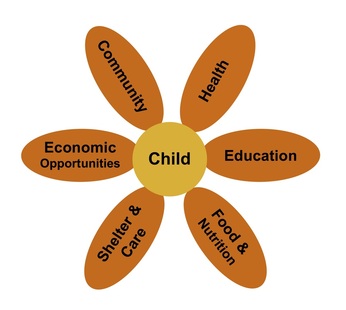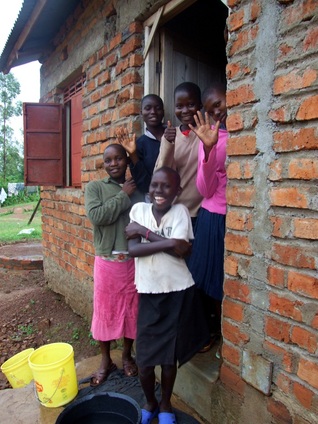What We Do
Who We Serve
Become supports communities in Kenya, South Sudan and Haiti to improve the quality of life of orphaned and vulnerable children and their families, and to sustain their health, education and economic status. Become serves people regardless of religion, race, ethnicity, or gender.
Our Projects
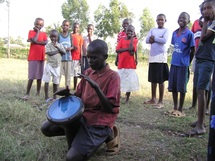
Abba Community Orphanage, Kenya
The Abba Self Help Group runs educational, social, health and agricultural community projects to support vulnerable children, elderly women and the local community. All projects are self-sustaining. Become seeks only to increase the impact of existing income-generating, awareness raising, and community empowerment activities. Read more
The Abba Self Help Group runs educational, social, health and agricultural community projects to support vulnerable children, elderly women and the local community. All projects are self-sustaining. Become seeks only to increase the impact of existing income-generating, awareness raising, and community empowerment activities. Read more
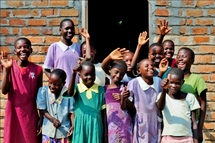
Kager Children’s Clinic, Kenya
Become helped constructing a clinic in Kager, West Kenya, to provide healthcare for the children of Heartspring Children's Village and Heartspring Junior Academy. Become also facilitated the establishment of a Village Health Team (VHT) to raise awareness of public health issues within the local community. Read more
Become helped constructing a clinic in Kager, West Kenya, to provide healthcare for the children of Heartspring Children's Village and Heartspring Junior Academy. Become also facilitated the establishment of a Village Health Team (VHT) to raise awareness of public health issues within the local community. Read more
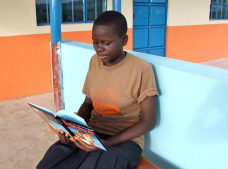
From Streets to Scholar Scholarship Program
This program currently provides secondary school scholarships for 17 students, and we are looking for new sponsors for 31 additional children from the Homa Bay district in Kenya. In this district, only 23.5% of the children receive secondary school education, which without it, they have no chance of exiting the poverty cycle. Read more
This program currently provides secondary school scholarships for 17 students, and we are looking for new sponsors for 31 additional children from the Homa Bay district in Kenya. In this district, only 23.5% of the children receive secondary school education, which without it, they have no chance of exiting the poverty cycle. Read more
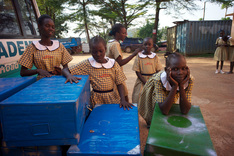
Come True Education Program, South Sudan
Come True is an initiative developed to address the major educational needs of the South Sudanese children who were deported from Israel in 2012. With the quality of the education system in South Sudan ranking among the lowest in the world, the most viable option was to enroll the children in a reputable boarding school in Kampala, Uganda in order for them to continue to receive a proper education. Read more
Come True is an initiative developed to address the major educational needs of the South Sudanese children who were deported from Israel in 2012. With the quality of the education system in South Sudan ranking among the lowest in the world, the most viable option was to enroll the children in a reputable boarding school in Kampala, Uganda in order for them to continue to receive a proper education. Read more
Health
Education
Food & Nutrition
Shelter & Care
Economic Opportunities
Community Strengthening
- Access to basic health care: We work to ensure that children and their families have access to basic health care. We establish income-generating community health facilities, run by local staff.
- Prevention & health promotion: We focus on prevention such as immunization, clean water, sanitation, insecticide-treated nets, deworming, life skills and health education.
- Trainings: We help build the capacity of health care workers through trainings.
Education
- Access to basic education: We help improve access and quality of formal education by providing assistance to existing schools. Our focus is on universal basic education (i.e. primary and secondary), pre-primary, vocational, and special education.
Food & Nutrition
- Training and nutrition awareness: We provide trainings for local community leaders, caretakers, educators, and health practitioners, on the importance of a sufficient and balanced diet, and together we create nutritional plans for the children they serve.
- Food security: We work with vulnerable households to help ensure that they can afford basic needs for their children and provide access to sufficient and nutritious food.
Shelter & Care
- Family support: We strengthen coping capacities of families and communities by providing resources and skills to enable them to care and foster orphans and vulnerable children.
- Community care: We encourage communal responses from families and communities, such as providing land, building materials and labour for orphanages. We invest in community-led orphanages. Residential care outside the community is seen as the last resort, as the most appropriate place for orphans is within their own families and communities.
Economic Opportunities
- Micro-loans: We help establish micro-finance and saving schemes that benefit families and households caring for orphans and other vulnerable children. Our income promotion projects use low-risk activities to stimulate growth in household income.
- Food security: We focus on improving agricultural productivity among households where adult members are ill or have died.
- Support groups: We help to strengthen social safety nets to support the elderly and the handicapped.
Community Strengthening
- Community partners: Our projects are accomplished through partnerships and collaboration with community-based organizations, and are owned and managed by members of the community, thus ensuring their viability and sustainability. All projects are based on participation, integration and engagement of local communities, while building on local assets, resources and knowledge. Our interventions also emphasize community volunteerism whenever possible.
- Capacity building: We strengthen the leadership and management of our local partner organizations through capacity building and trainings.
Program Design
- Our programmes adopt a holistic approach in providing care, support, and protection for orphans and vulnerable children in communities.
- Our interventions are derived from international standards, national policies of the country we work in, and current best practices.
- Our assistance for the support of orphans and vulnerable children is, wherever possible, channelled through existing structures.
- Communities, families and children actively participate in project design, implementation, monitoring and evaluation.
- We provide services within our expertise. Where such expertise does not exist, we collaborate with and/or refer to other organizations to provide such services.
- We support the establishment or strengthening of community development committees responsible for child welfare to identify orphans and vulnerable children and help develop and disseminate criteria for children and households that should benefit from interventions and services.
- Become as an organisation, and its staff and volunteers must adhere to child protection protocols.
